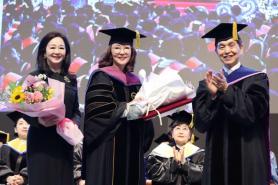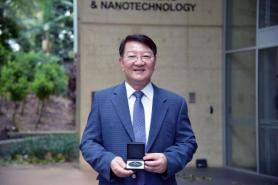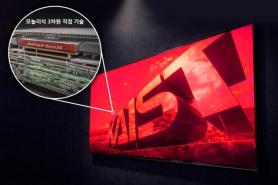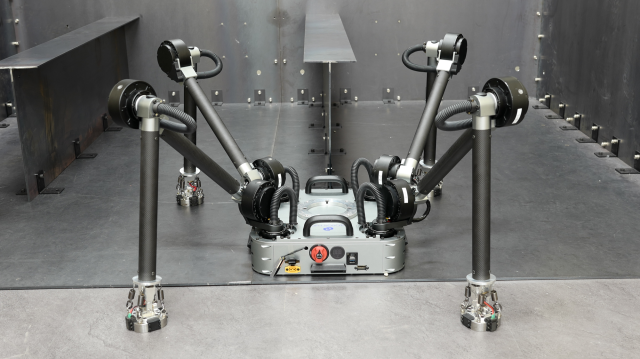
SEOUL, September 30 (AJP) - On September 30, Korea Advanced Institute of Science and Technology (KAIST) announced that two robotics startups spun out of its labs are taking their machines into the real world, from climbing the steel walls of shipyards to walking among crowds in Seoul's Gangnam district.
One of the startups, DIDEN Robotics, was founded in March 2024 by four researchers trained in KAIST's Department of Mechanical Engineering. The company's main product is a four-legged robot called "DIDEN 30." With magnetic feet and a leg design inspired by animals, it can cling to steel walls and ceilings, tackling dangerous jobs in shipbuilding where humans struggle to reach.

Last month, DIDEN 30 completed field tests at Samsung Heavy Industries. The robot managed to climb over dense steel reinforcements and perform welding, proving it could handle real shipyard conditions. The team is now refining it to squeeze through narrow "access holes" inside ships. By late 2026, they expect it to be ready for large-scale tasks like welding, inspection, and painting. Work has also begun on a two-legged model, "DIDEN Walker," aimed at complex operations in confined shipyard spaces.
The company's AI platform, "DIDEN World," is another core strength. It allows the robot to practice in virtual simulations before being deployed, speeding up learning and reducing trial-and-error in the real world. DIDEN is also improving its 3D vision technology with multiple cameras, aiming to achieve full autonomous walking by 2026. Beyond Samsung Heavy Industries, it is already collaborating with HD Hyundai Samho, Hanwha Ocean, and HD Korea Shipbuilding and Offshore Engineering.
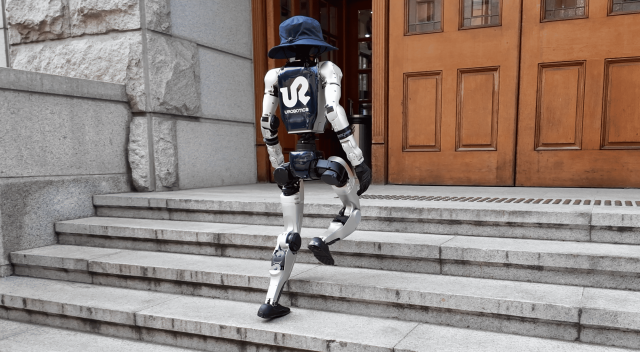
The second startup, URobotics, was formed by three researchers from KAIST's School of Electrical Engineering. Its focus is on humanoid robots that can walk on their own without external sensors. In a recently released video, one of its robots walked naturally through busy streets in Gangnam, drawing attention for its stable movements in real traffic and crowds.
The secret lies in a "blind walking controller." Unlike most robots that depend on cameras or laser sensors, URobotics' system uses only internal signals. This allows the robot to "imagine" the ground beneath its feet, walking steadily day or night, in rain or shine, across slopes, stairs, and curbs. The technology first gained recognition when the KAIST team beat MIT to win the legged robot competition at the 2023 International Conference on Robotics and Automation.
Yoo Byung-ho, CEO of URobotics, said, "This demonstration is the first step toward fully autonomous walking humanoids. We want to turn KAIST research into technology that works in industry."
Hyeon-min Bae, head of KAIST's Startup Incubator, said the school will keep supporting robotics ventures from their early days. KAIST President Kwang-hyung Lee added that these achievements show how university research can move quickly into real-world industries, helping strengthen South Korea's role in global robotics.
Copyright ⓒ Aju Press All rights reserved.


